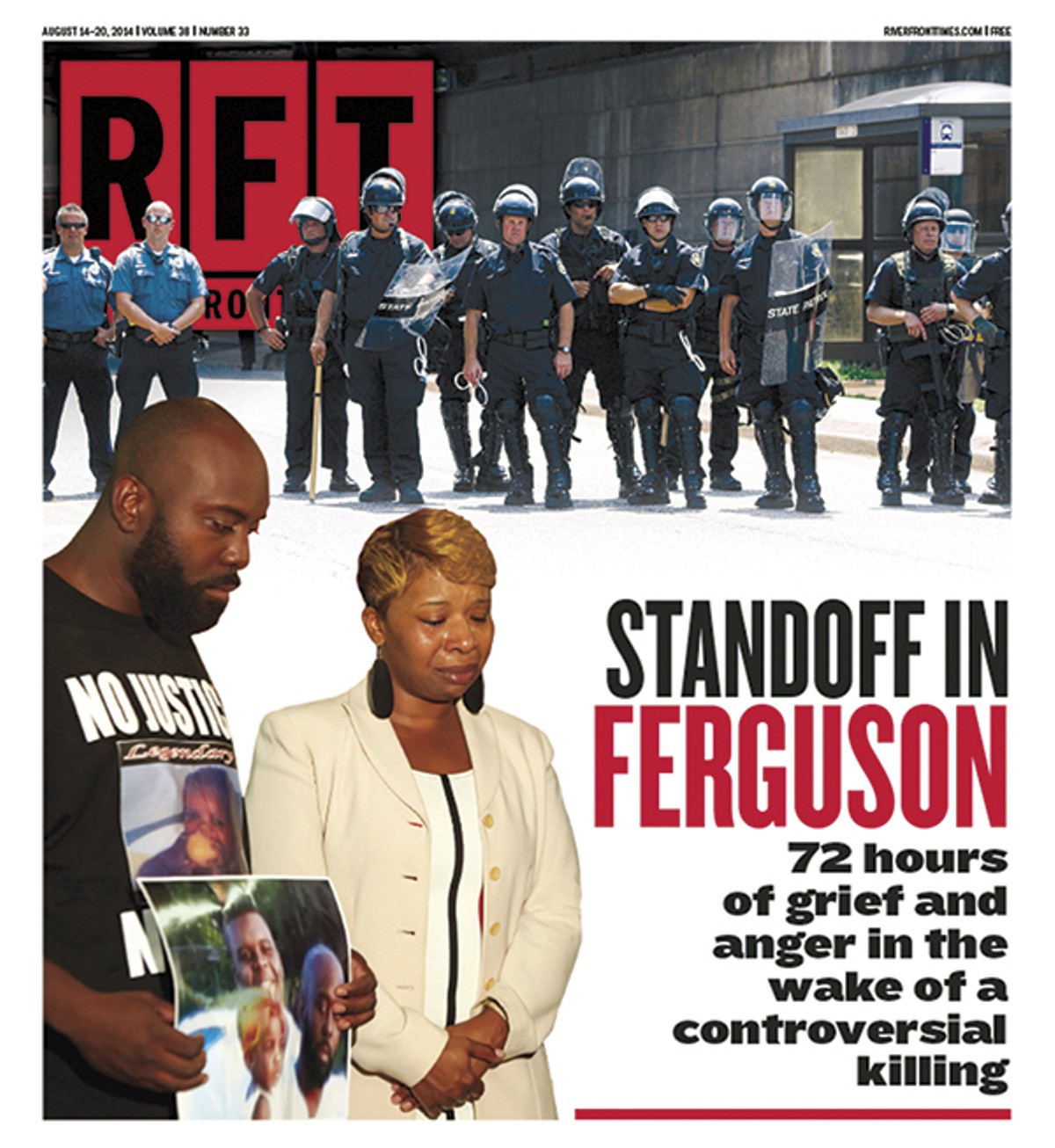I joined the Riverfront Times as a staff writer in May 2004. By then it had been six years since the RFT's founder, Ray Hartmann, sold the paper to the New Times chain of alt-weeklies. Six years and yet I got the same question on nearly every call I'd make as a reporter: "Is Ray Hartmann still there?"
Over the years the question became both a joke and a curse for the post-Hartmann generation of the RFT. On one hand it revealed how little attention the general public paid to the local media landscape. (I blame the Channel 9 roundtable Donnybrook, which for years continued to identify Hartmann as "Riverfront Times Founder," even though he owned St. Louis Magazine.) On the other hand, the question laid bare just how far Hartmann's star continued to outshine our own. Rightly or — I'd argue — wrongly.
Say what you will about the New Times ownership of the Riverfront Times, but it's hard to deny the emphasis the company placed on writing. Sure, it may have been a bit irreverent at times, especially compared to the more earnest coverage associated with the paper in the Hartmann era. But, damn, the caliber of writers that RFT editor Tom Finkel and his New Times talent scout, Andy Van De Voorde, assembled. The seventeen years that New Times and its successor, Denver-based Voice Media Group, owned the paper saw many great journalists come to St. Louis to write for the paper — and the birth of more than a few stars.
I'm thinking of people like Malcolm Gay, now a reporter with the Boston Globe, who could write brilliantly on damn near any subject from arts to crime, and who once penned a 5,000-word story on the origins of Chinese food in St. Louis told through the lens of Western philosophy. Or Kristen Hinman, now an editor at the Washingtonian, whose infectious laughter and dogged reporting could get sources to reveal information that would often culminate with an authority figure losing a job or headed to prison (and Kristen on her way to scooping up another journalism honor). Or Mike Seely, a wickedly funny writer whose dissections of pop culture managed to go "viral" even in the days before social media. (Somewhere a million Paul McCartney fans are still fuming about Mike's hilarious takedown of the cute Beatle.)
There were so many other brilliant writers and sharp minds. At one time seemingly half the staff held Ivy League degrees. The music editor, for chrissake, graduated Harvard. Over the years, I've watched these former colleagues go on to work for outfits such as Vice News, Buzzfeed, the L.A. Times, the Chicago Reader, BBC Magazine, the Guardian and even our our old rival, the Post-Dispatch. Others, like my former colleague Ben Westhoff, now earn a living writing books.
And yet walk through the RFT newsroom and at some point each week you'd hear one of these reporters on the phone bashfully replying, "No, Ray does not work here anymore."
Part of me wishes I had worked at the paper during the Hartmann years — back before Craiglist and OkCupid (and dozens of other free online platforms) took away the paper's once-lucrative classified ads. Instead, I spent much of my time at the RFT weathering budget cut after budget cut.
Somehow I survived the downsizing. After four years as a staff writer, in which my work occasionally held up to that of my colleagues, I took a position as the paper's first news blogger. The goal was to increase the paper's online readership, which (the theory went) would drive up our digital ad revenue. Yet during my two years as news blogger our budget kept shrinking, and that remained the case even after a 22-year-old blogging wunderkind replaced me and shot our page views through the roof.
From the blogging desk I went on to serve a couple years as the paper's managing editor. In 2013, when Finkel left to take the job as editor of the Village Voice, I slipped into his seat as editor in chief.
A year into that job (and four months before I would leave for a new career outside of journalism), I was sitting at my desk when the phone rang. The previous months had been a whirlwind, with our meager news staff (now down to two writers, a blogger and two editors) exhaustively covering the events in Ferguson. Still, we'd manage to break a multitude of stories, and now national and international media outlets were calling us for insight and analysis. So, too, was the caller on the other end of the line. It was Ray Hartmann.
He was writing about Ferguson for his St. Louis Magazine column and wanted to bounce around some ideas. For the next twenty minutes he verbally constructed his column as I sat there mutely with the phone to my ear. It's not that I didn't have any thoughts on the topic. It's that I was rarely asked. Frankly, I'm not convinced he even knew who he was speaking to at the RFT. I could've been the music section intern. It didn't matter. Ray needed a sounding board; I sufficed.
Some of my former colleagues used to swear the paper's office on Delmar was haunted. They'd see a peculiar shadow creep across their desk or catch an odd flash out of the corner of their eye. Me? I can't say I ever saw a ghost while at the RFT. Once, though, I did take his call.
Chad Garrison currently works as a corporate writer and editor.






